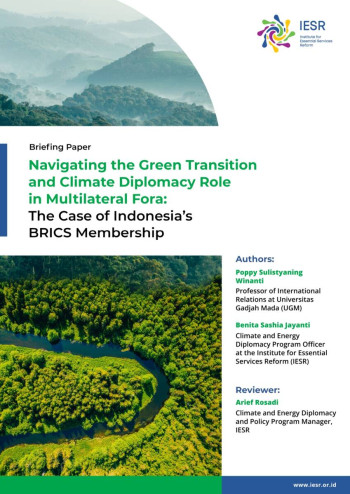This briefing paper analyzes Indonesia’s green transition, a complex journey presenting both significant opportunities and challenges. Indonesia strives to balance its development targets with environmental stewardship to achieve inclusive economic growth, focusing on renewable energy and climate resilience. While the potential for innovation and green investment is vast, the nation grapples with hurdles like regulatory frameworks, infrastructure limitations, and socio-economic impacts, reflecting a global struggle to harmonize development and sustainability.
Indonesia’s shift towards a greener future is shaped by both local and global dynamics. Internally, governmental changes have led to institutional and regulatory uncertainty, compounded by a heavy reliance on fossil fuels. Internationally, rising geopolitical tensions and strategic protectionism further complicate the global landscape, prompting Indonesia to align its foreign policy more closely with the interests of developing nations.
Given these circumstances, this paper explores how Indonesia’s BRICS membership can support its green transition. This membership is expected to accelerate renewable energy initiatives, foster inclusive economic growth, and strengthen Indonesia’s role in South-South Cooperation. The study will highlight BRICS platforms, including access to alternative green funding and investments through the New Development Bank (NDB) and opportunities for green technology acquisition. Furthermore, the paper will examine how BRICS can serve as a forum for Indonesia to voice the Global South’s perspectives on the green transition, concluding with policy recommendations to navigate the challenges of leveraging this membership.
Reviewer
Arief Rosadi

